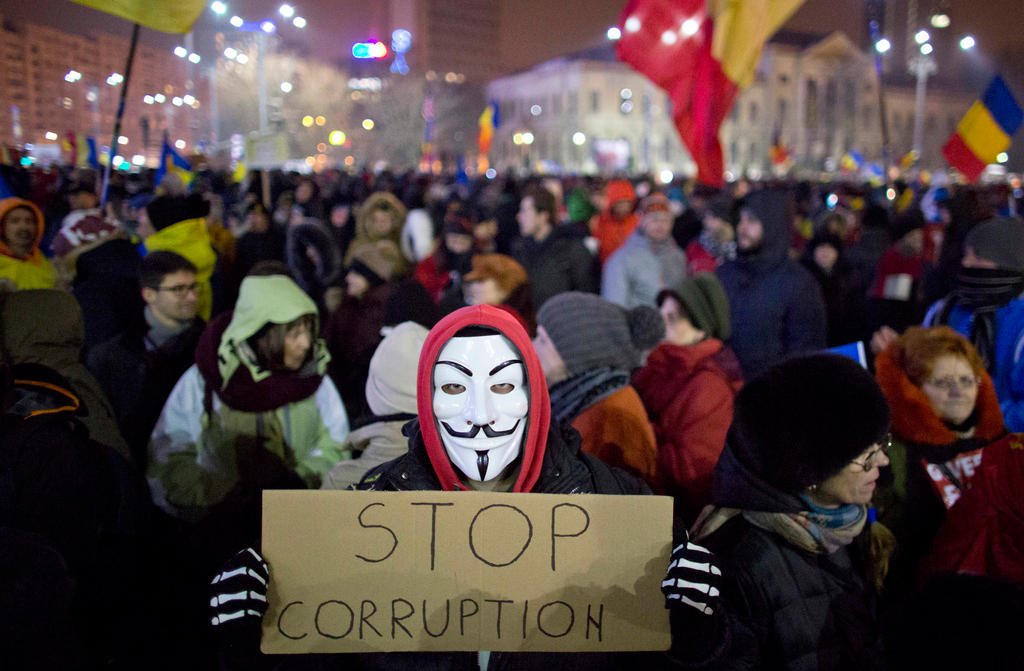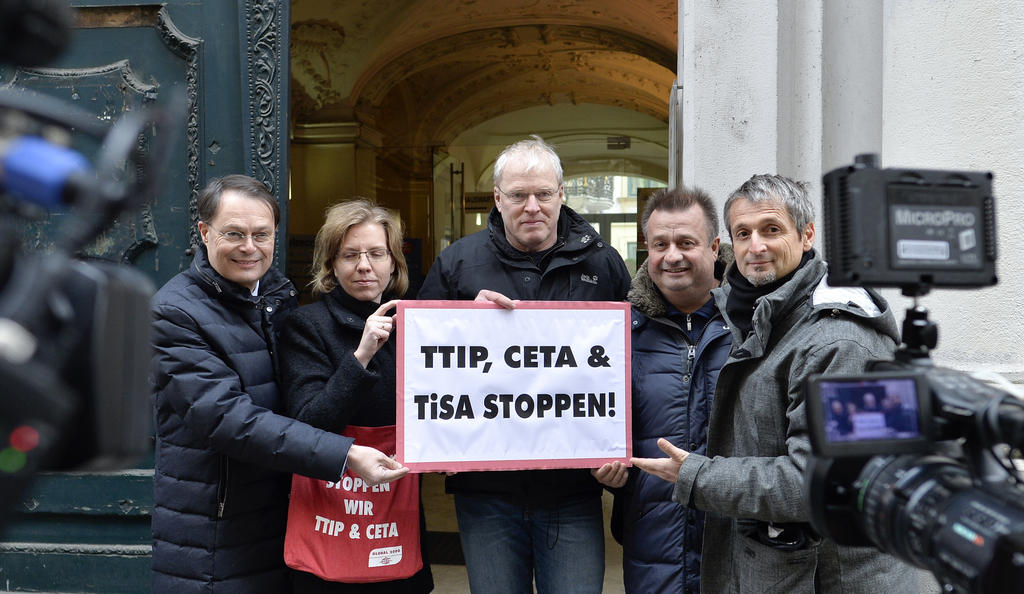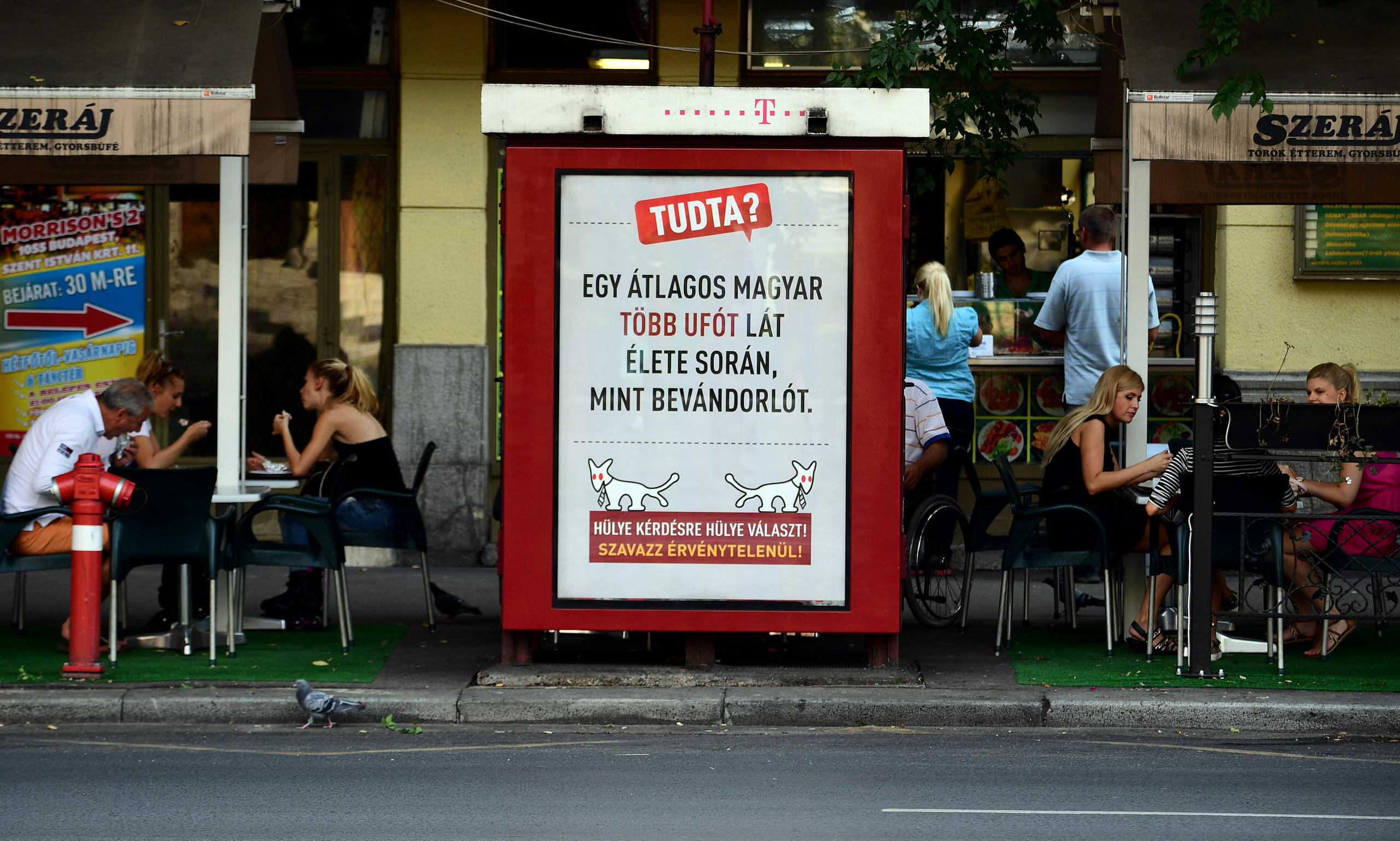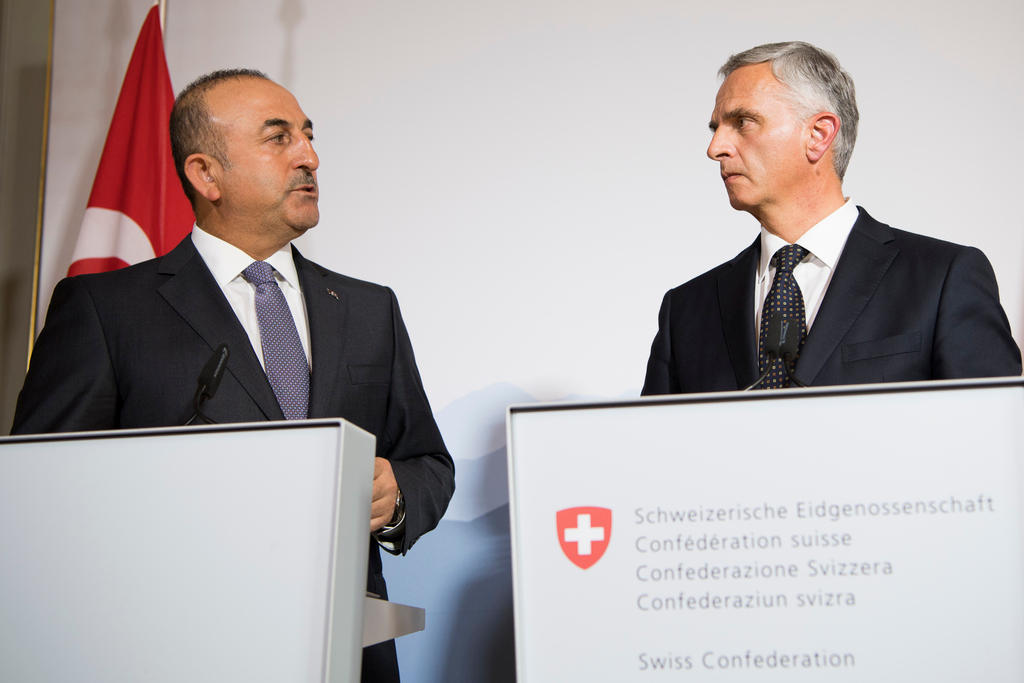Romania’s difficult struggle for democracy

Millions of Romanians have taken to the streets to protest against their government and in favour of strong anti-corruption laws. The demonstrations give insights into the complex democratic challenges, which reach far beyond the southeastern European country.
At the outset, everything looks quite logical: in a hasty and opaque decision taken in the middle of the night, the Romanian cabinet on January 31 adopted an urgent decree to decriminalise the abuse of office (and corruption cases with less than $50,000 involved).
The decree was designed to whitewash the convicted leader of the governing Social Democratic Party, Liviu Dragnea.
Therefore, it came as no surprise that this decree was not welcomed by many people and institutions outside the inner government circles.

However, the initial opposition in the public has developed into a massive protest movement unseen since the fall of the Communist regime 27 years ago. ”We are rewriting our history now,” reads a petition delivered by the protesters to parliament.
“As we are fighting for freedom, the rule of law and active citizenship. We want to be an example for Europe and democracy worldwide.”
Instead of the usual cigarette lighters or candles, the mostly young protesters hold their lit-up smartphones towards the dark winter sky and label their protests somewhat high-flown, “The Lights Revolution“.
Dismantling of democracy
It is certainly encouraging to see and follow all these developments in Romania.
In too many countries across the world, political leaders have recently tried not only to question but also dismantle fundamental democratic achievements: The 45th US president is considering new ways to bypass the court system, while governments in Poland and Hungary have carried out successful attacks on the judicial system and media freedom.
In Russia and Turkey, parliament has adopted new legislation, which decriminalises domestic violence and sexual abuse of minors.
Governments in all these countries have in fact won recent elections, even if none of the ruling parties has an absolute majority of the popular vote.
This text is part of #DearDemocracy, a platform on direct democracy issues, by swissinfo.ch.
In the December 11 elections in Romania, the ruling PSD took more than 45% of the vote, almost winning a majority of seats in the two parliament chambers.
The street protests caught the Romanian government by surprise and it has tried to discredit the organisers of the demonstrations as bad losers of the recent elections.
Weaknesses
The situation in Romania shows in an exemplary way some of the key weaknesses of democracy in many countries across the world:
First, many electoral systems are designed to produce governing majorities regardless of popular majorities. Such systems, inspired by the British Westminster form of parliament, are producing a majority of losers and undermine the very idea of democracy (rule by the people) over time.
Especially under fragile democratic circumstances, such electoral systems open the door to a more comprehensive dismantling of democratic principles and procedures.
Second, in order to balance such tendencies, other state institutions are disconnecting from political democracy and have become technocratic checks on an elected government.
This may seem to be welcome in critical situations, but in the longer term, such institutions are considered remote elitist retreat places. What’s more, they tend to lose their legitimacy.
The current situation in Romania mirrors this growing disconnect very clearly, as it does in the US or the European Union
In Poland, Hungary, Turkey or Russia, such check-and-balances have already become much weaker – in a negative sense, while in more stable democracies like Germany, Norway or Switzerland the necessary divisions of state powers are (still) contributing to the stability of the political system.
Third, and probably most seriously, the representative systems in place are not able to truly represent the various interests in the country.
In the 2016 election in Romania, fewer than 40% of the eligible voters participated, which means that the now governing PSD in fact only stands for a small part of the population, as do the other four parties in the parliament.
In ‘normal’ times, this rivalry between different power circles and their corrupt clientele politics lead to frustration. Under special circumstances as now, however, they erupt into social upheaval as seen in Romania.
Lack of trust as highest hurdle
After all there is a long way to go from mass indignation to concrete political reforms which would be able to address these key weaknesses.
While people and groups from all walks of life seem to be able to gather in protests during such times, they (too) often have little patience and know-how to establish a long-term reform movement.
An example is the ‘revolution’ in Iceland after the financial crash. All efforts to democratise an anachronistic political system finally have resulted in a recent electoral victory of the old ruling party, the corruption-damaged Independence Party – a development, which is very similar to Romania.
This brings me to a final observation: while the idea of (more) democracy is mostly welcomed across the world, the equally widespread mistrust (vis-a-vis political opponents and partners) often undermines the way forward. The current Romanian struggle for democracy is as difficult as it is exemplary.

In compliance with the JTI standards
More: SWI swissinfo.ch certified by the Journalism Trust Initiative





You can find an overview of ongoing debates with our journalists here. Please join us!
If you want to start a conversation about a topic raised in this article or want to report factual errors, email us at english@swissinfo.ch.